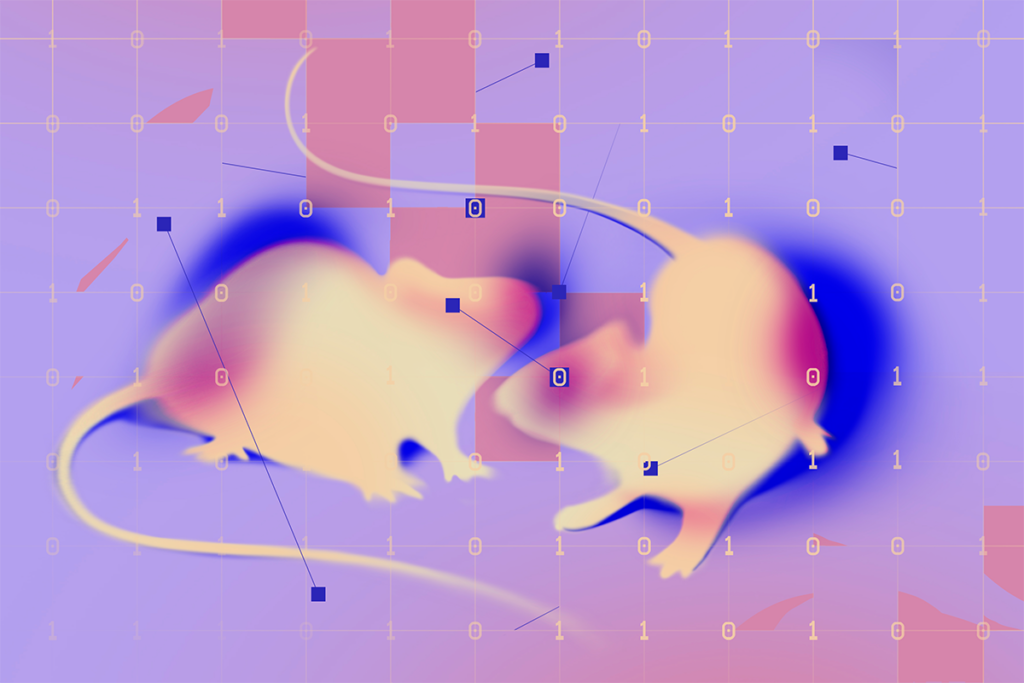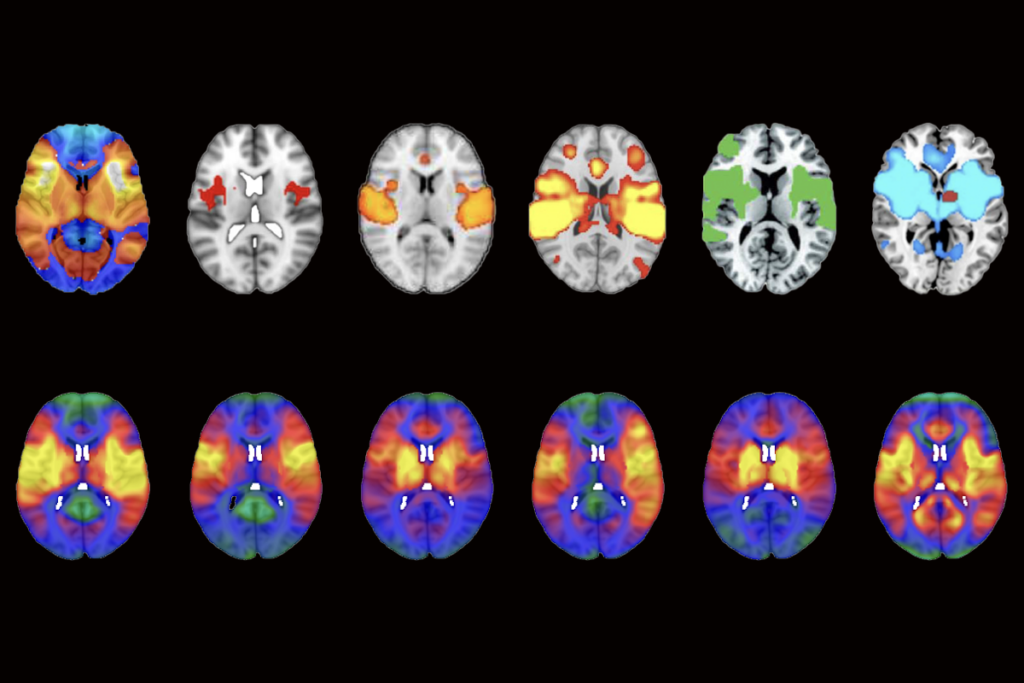The immune system in autism
Recent articles
Featured articles
The enemy within
The possibility that autism is caused by a maternal immune system gone awry is no longer a fringe idea — but proposals to identify or fix these glitches are still controversial.

The enemy within
The possibility that autism is caused by a maternal immune system gone awry is no longer a fringe idea — but proposals to identify or fix these glitches are still controversial.
The brain’s secret gardeners
Once thought merely to be specialized immune system cells, microglia now appear to be master landscapers of the developing brain.

The brain’s secret gardeners
Once thought merely to be specialized immune system cells, microglia now appear to be master landscapers of the developing brain.
Blocking key immune signal prevents autism signs in mice
Researchers have identified a key immune molecule in pregnant mice that produces autism-like behaviors in their pups.

Blocking key immune signal prevents autism signs in mice
Researchers have identified a key immune molecule in pregnant mice that produces autism-like behaviors in their pups.
From the archives
Immune disorders during pregnancy boost autism risk in children
Women who have lupus are roughly twice as likely as women without an immune disorder to have a child with autism.

Immune disorders during pregnancy boost autism risk in children
Women who have lupus are roughly twice as likely as women without an immune disorder to have a child with autism.
Large study links maternal infection to autism risk
Having an infection during pregnancy significantly raises the risk of having a child with autism, finds the largest epidemiological study to date to examine the link.

Large study links maternal infection to autism risk
Having an infection during pregnancy significantly raises the risk of having a child with autism, finds the largest epidemiological study to date to examine the link.
Maternal anti-brain antibodies may play a role in autism
Maternal antibodies that attack fetal brain proteins could underlie some cases of autism, says immunologist Betty Diamond.

Maternal anti-brain antibodies may play a role in autism
Maternal antibodies that attack fetal brain proteins could underlie some cases of autism, says immunologist Betty Diamond.
Monkey mother’s immune response changes her infant’s brain
Monkeys whose mothers are infected with a mock virus while pregnant show abnormal branching of certain brain cells. The findings may help explain why infection during a woman’s pregnancy ups the risk of autism in her children.

Monkey mother’s immune response changes her infant’s brain
Monkeys whose mothers are infected with a mock virus while pregnant show abnormal branching of certain brain cells. The findings may help explain why infection during a woman’s pregnancy ups the risk of autism in her children.
Placenta plays potent role in autism risk
As the central organ regulating maternal-fetal interactions, the placenta is perfectly positioned to mediate environmental and genetic risk factors during prenatal development. It may also relay risk factors for autism to the fetus, says Paul Patterson.

Placenta plays potent role in autism risk
As the central organ regulating maternal-fetal interactions, the placenta is perfectly positioned to mediate environmental and genetic risk factors during prenatal development. It may also relay risk factors for autism to the fetus, says Paul Patterson.
Newborn blood may reveal early immune signs of autism
Children diagnosed with autism tend to have low blood levels of several immune molecules at birth, according to an epidemiological study published in August in the Journal of Immunology.

Newborn blood may reveal early immune signs of autism
Children diagnosed with autism tend to have low blood levels of several immune molecules at birth, according to an epidemiological study published in August in the Journal of Immunology.
Beth Stevens: Casting immune cells as brain sculptors
Beth Stevens is unmasking new roles for microglia, the mysterious brain cells that seem to shape brain circuits.

Beth Stevens: Casting immune cells as brain sculptors
Beth Stevens is unmasking new roles for microglia, the mysterious brain cells that seem to shape brain circuits.
Study questions promise of bone marrow transplant for Rett
Researchers from four labs were unable to reproduce the findings from a high-profile 2012 study in which bone marrow transplants dramatically extended the lives of mice with features of Rett syndrome. Their sobering findings were published yesterday in Nature.

Study questions promise of bone marrow transplant for Rett
Researchers from four labs were unable to reproduce the findings from a high-profile 2012 study in which bone marrow transplants dramatically extended the lives of mice with features of Rett syndrome. Their sobering findings were published yesterday in Nature.
Cognition and behavior: Maternal infection linked to anxiety
Offspring born to pregnant rats with an activated immune system emit more distress calls when they receive electrical shocks than do controls, according to a study published 9 June in the Journal of Psychiatric Research.

Cognition and behavior: Maternal infection linked to anxiety
Offspring born to pregnant rats with an activated immune system emit more distress calls when they receive electrical shocks than do controls, according to a study published 9 June in the Journal of Psychiatric Research.
Maternal infection exacerbates genes’ effect on autism
Children with too many or too few copies of certain genes are more likely to have autism, as are children born to women who battled a severe infection while pregnant. These seemingly disparate risk factors may work together to worsen autism symptoms.

Maternal infection exacerbates genes’ effect on autism
Children with too many or too few copies of certain genes are more likely to have autism, as are children born to women who battled a severe infection while pregnant. These seemingly disparate risk factors may work together to worsen autism symptoms.
Explore more from The Transmitter
How artificial agents can help us understand social recognition
Neuroscience is chasing the complexity of social behavior, yet we have not answered the simplest question in the chain: How does a brain know “who is who”? Emerging multi-agent artificial intelligence may help accelerate our understanding of this fundamental computation.

How artificial agents can help us understand social recognition
Neuroscience is chasing the complexity of social behavior, yet we have not answered the simplest question in the chain: How does a brain know “who is who”? Emerging multi-agent artificial intelligence may help accelerate our understanding of this fundamental computation.
Methodological flaw may upend network mapping tool
The lesion network mapping method, used to identify disease-specific brain networks for clinical stimulation, produces a nearly identical network map for any given condition, according to a new study.

Methodological flaw may upend network mapping tool
The lesion network mapping method, used to identify disease-specific brain networks for clinical stimulation, produces a nearly identical network map for any given condition, according to a new study.
Common and rare variants shape distinct genetic architecture of autism in African Americans
Certain gene variants may have greater weight in determining autism likelihood for some populations, a new study shows.

Common and rare variants shape distinct genetic architecture of autism in African Americans
Certain gene variants may have greater weight in determining autism likelihood for some populations, a new study shows.